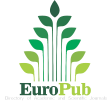Journalists’ Autonomy around the Globe: A Typology of 46 Mass Media Systems
DOI:
https://doi.org/10.22032/dbt.35003Keywords:
mass media systems, comparative research, documentary analysis, expert interviews, typologyAbstract
Using structuration theory, assuming that every government has a stake in steering public communication and comparing 46 nation-states, this paper explores the major principles that can be used to explain different mass media structures around the globe. The study draws on extensive documentary analysis and includes more than 150 expert interviews. It shows that media freedom and journalists’ autonomy depend on not only the particular governmental system, the constitution, journalism education, and the existence of commercial media but also, to a significant extent, on economic realities, the tradition of press freedom, and various other factors that are historical, religious, and/or geographic. The tool to do so is a mass media system typology based on two dimensions: formal expectations and the state’s influence.
Downloads
Published
How to Cite
Issue
Section
License
Copyright (c) 2018 Michael Meyen

This work is licensed under a Creative Commons Attribution 4.0 International License.








